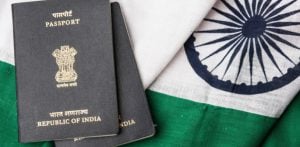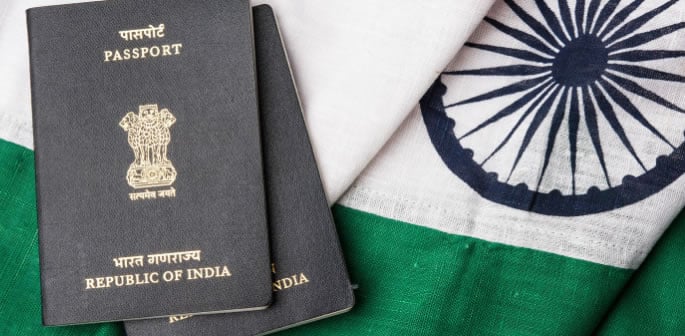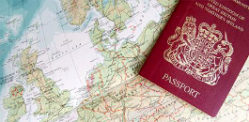"that interferes with the country's reputation."
The Indian passport is falling in global ranking due to a number of reasons.
In the Henley Passport Index, a ranking of global passports based on visa-free travel, India placed 85th out of 199 countries. That is five spots lower than in 2024.
Countries like Rwanda, Ghana and Azerbaijan, with far smaller economies than India’s, rank higher.
This contrasts sharply with India’s global economic position as the world’s fifth-largest economy.
India’s passport ranking has remained stagnant for a decade, often hovering in the 80s and even dipping to 90th in 2021. In contrast, Asian neighbours such as Japan, South Korea and Singapore consistently occupy the top spots.
Singapore once again topped the 2025 index with visa-free access to 193 countries. South Korea followed with 190, and Japan came third with 189.
Meanwhile, Indian passport holders can travel visa-free to just 57 countries, the same number as Mauritania, which shares India’s rank.
A nation’s passport strength reflects its global standing and diplomatic influence. It affects citizens’ mobility, economic opportunities, and ease of global engagement.
A weak passport means more paperwork, higher visa costs and longer waiting times.
However, India’s decline in ranking does not mean there has been no progress. The number of countries offering visa-free access to Indians has grown over the past decade.
In 2014, when Prime Minister Narendra Modi’s Bharatiya Janata Party (BJP) came to power, India’s passport ranked 76th with visa-free access to 52 countries.
A year later, it dropped to 85th, before recovering slightly to 80th in 2023 and 2024. Yet in 2025, despite visa-free access to 57 destinations, India’s ranking remains at 85.
Experts say the issue lies in the increasingly competitive global mobility landscape. Countries are rapidly expanding visa partnerships, outpacing India’s diplomatic efforts.
A 2025 report by Henley and Partners found that the global average number of visa-free destinations has nearly doubled from 58 in 2006 to 109 in 2025.
China is a prime example. In the past decade, it has expanded visa-free access for its citizens from 50 to 82 destinations. Its passport ranking has jumped from 94th to 60th in the same period.
India briefly rose to 77th in July 2025, enjoying visa-free access to 59 destinations. But by October, it had fallen back to 85th after losing access to two countries.
Achal Malhotra, former Indian ambassador to Armenia, says several factors affect a country’s passport strength, including economic stability, political reputation and openness to foreign nationals.
He said: “Many countries are also becoming increasingly wary of immigrants.
“India has a high number of people migrating to other countries or overstaying their visas and that interferes with the country’s reputation.”
Mr Malhotra added that global perceptions of India’s political and social climate play a role:
“In the 1970s, Indians enjoyed visa-free travel to many Western and European countries, but that changed after the Khalistan movement in the 1980s.”
The Khalistan separatist movement, which called for an independent Sikh homeland, caused internal instability and damaged India’s global image.
Mr Malhotra continued:
“Subsequent political upheavals have further chipped away at India’s image as a stable, democratic country.”
The report also noted that even traditionally strong passports, such as that of the United States, are not immune to decline.
The US now ranks 12th, its lowest ever position, due to what the report describes as an “increasingly insular stance in world politics”.
Beyond perception, practical issues continue to hold India back. Passport security and immigration efficiency are key components of international trust.
In 2024, Delhi police arrested 203 people for alleged visa and passport fraud. India’s visa and immigration processes are also seen as cumbersome and slow, discouraging reciprocal agreements from other nations.
Mr Malhotra believes that technological innovations like India’s new electronic passport, or e-passport, could help. The e-passport includes a biometric chip that stores personal data, making it harder to forge or tamper with.
He said such measures can enhance India’s credibility and ease international travel, but technology alone will not solve the problem.
Mr Malhotra added: “More diplomatic outreach and travel agreements remain key to boosting the global mobility of Indians and, by extension, India’s passport ranking.”






























































